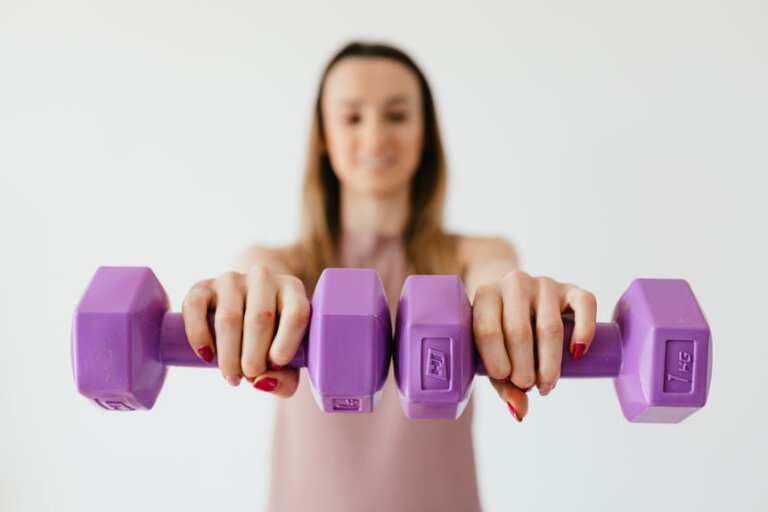The Best Nutrition Tips for Female Athletes
Imagine you're gearing up for a marathon – you wouldn't start without strapping on your best running shoes, would you? Similarly, as a female athlete, you can't overlook the importance of proper nutrition.
It's not just about eating more; it's about consuming the right blend of nutrients to fuel your body and enhance your performance. From understanding your unique nutritional needs to balancing macronutrients and optimizing hydration, there's a lot to learn.
So, are you ready to take the first step towards a nutritionally sound athletic journey?
Understanding Female Athletes' Nutritional Needs
To optimize your performance and recovery, it's crucial to understand the unique nutritional needs of female athletes. You're not just any athlete – you're a woman, and that means your body requires special care. It's not just about packing in protein or carbs; it's about balance.
First, focus on iron. Many female athletes are iron-deficient, which can lead to fatigue and poor performance. Include iron-rich foods like lean meats, beans, and fortified cereals in your diet.
Second, don't forget about calcium and Vitamin D. They're essential for bone health, especially as you age. Dairy products, leafy greens, and sunlight exposure can help you meet these needs.
Third, be mindful of your calorie intake. Too few calories and you risk energy deficiency, poor performance and health issues. Too many and you could gain unwanted weight. Your caloric needs depend on your activity level, age, and body composition.
Lastly, ensure you're eating enough protein to support muscle recovery and growth. Aim for lean sources like chicken, fish, and plant-based proteins.
Importance of Hydration in Performance
While ensuring your diet meets all your nutritional needs, don't overlook the critical role of hydration in your athletic performance. Water is vital for every cell in your body and plays a significant role in keeping your body functioning optimally.
You mightn't realize it, but even mild dehydration can seriously hamper your performance. It can lead to fatigue, dizziness, and decreased concentration. These symptoms can negatively impact your ability to perform, both in practice and in competition. So, it's crucial to keep your body well-hydrated before, during, and after exercise.
Hydration isn't just about drinking plenty of water. It also involves replenishing electrolytes, which are minerals that regulate nerve and muscle function, maintain acid-base balance, and help keep you hydrated. Consuming beverages or foods with electrolytes, such as potassium and sodium, can help replace what you lose through sweating.
Remember, hydration needs can vary from person to person and can be influenced by factors like the intensity of your workout, the environment, and even your menstrual cycle. Therefore, it's important to listen to your body and hydrate accordingly.
Don't underestimate the power of hydration. It's as essential to your performance as any other aspect of your diet.
Balancing Macronutrients for Energy
As an athlete, it's crucial you understand how to balance your macronutrients for optimal energy. This isn't just about eating enough, it's about optimizing your nutrition for peak performance.
Understanding Macronutrient Distribution
You'll need to master the art of balancing macronutrients for optimal energy if you're a female athlete aiming for peak performance. Understanding macronutrient distribution is key to this.
Macronutrients – proteins, carbohydrates, and fats – are your body's primary energy sources. The ideal distribution varies, but a common guideline for athletes is 45-65% carbs, 10-35% protein, and 20-35% fats.
Carbs fuel short, intense activities. They're your high-octane gas. Proteins repair and build tissues, crucial post-workout. Fats support long, low-intensity workouts, and are like your diesel fuel.
Remember, everyone's different. Experiment to find your perfect balance. But don't neglect any macronutrient – they're all critical for top performance.
Understanding macronutrient distribution isn't just about numbers, it's about fueling your success.
Optimizing Energy Through Nutrition
Now that you've got a grip on macronutrient distribution, it's time to harness that knowledge to optimize your energy through nutrition.
Balancing your intake of proteins, carbohydrates, and fats is crucial for maintaining energy levels. You need carbs for immediate fuel, while proteins and fats are essential for slow-burning, sustained energy.
Keep in mind, not all sources are created equal. Opt for complex carbs like whole grains, lean proteins such as chicken or fish, and healthy fats found in avocados or nuts.
Timing is also key. Fuel up with a balanced meal a few hours before your workout and refuel with a protein-rich snack afterwards. Remember, it's not just about quantity, but quality and timing too.
Now, you're ready to fuel your performance effectively.
Role of Vitamins and Minerals
Understanding the role of vitamins and minerals in your diet can significantly enhance your athletic performance. They're not just important for overall health, but they directly impact your energy levels, muscle function, and recovery.
You're probably familiar with the importance of calcium for strong bones, but did you know it also aids in muscle contraction? Without sufficient calcium, you may experience muscle cramps during your workouts.
Iron, on the other hand, is vital for carrying oxygen to your muscles. If you're iron deficient, you'll feel fatigued and your performance may suffer. It's particularly crucial for female athletes, as iron levels can dip due to menstruation.
Vitamins such as B-complex are involved in energy production. They help convert the food you eat into fuel, giving you the stamina to endure rigorous training sessions. Then there's vitamin D, which aids in calcium absorption and immune function.
Recovery Nutrition Strategies
Now, let's tackle recovery nutrition strategies. You'll need to know what to eat after a workout and why staying hydrated is so vital.
We'll cover post-workout meal ideas and discuss the importance of hydration.
Post-Workout Meal Ideas
After an intense workout, it's crucial to refuel your body with nutrient-rich foods that aid recovery and muscle growth. You've done the hard work, now it's time to nourish your body. A good post-workout meal is a balance of protein, carbs, and fats.
Protein is crucial for muscle recovery, and lean sources like chicken, turkey, or tofu are great choices. Carbs replenish energy stores, and whole grains like brown rice or quinoa can do the trick. Don't forget healthy fats such as avocados or nuts, which provide sustained energy.
Try a chicken breast with quinoa and avocado, or a tofu stir-fry with brown rice. These meals ensure you're getting the nutrients you need to recover effectively and gear up for your next workout.
Importance of Hydration
Just as important as your post-workout meal is staying hydrated, a key aspect of recovery nutrition strategies. Hydration isn't just about quenching your thirst, it's critical for maintaining blood volume, regulating body temperature, and aiding in muscle contractions.
You've probably heard it's crucial to replace fluids lost through sweat during exercise.
However, it's also essential to hydrate before, during, and after workouts for optimal performance and recovery. Drinking water is good, but during long workouts, you'll also need to replenish electrolytes. Sports drinks or coconut water can help.
Adapting Nutrition to Training Cycles
Understanding how to adapt your nutrition to your training cycles is a vital part of optimizing your performance as a female athlete. You're not just eating to fuel your body, you're also eating to support your training. This means adjusting your food intake, not only in quantity but also in quality, to match the demands of your specific training periods.
During high-intensity training cycles, you'll need more carbohydrates to fuel your workouts. Opt for whole grain options and fruits for sustained energy. You'll also need to up your protein intake for muscle repair and recovery. Lean meats, fish, and plant-based proteins are your friends here.
However, during low-intensity or off-season periods, you don't need as many carbs. You can reduce your intake slightly, but don't cut them out completely. Focus more on proteins and healthy fats to maintain muscle mass and support overall health.
Frequently Asked Questions
What Are Some Common Dietary Mistakes Made by Female Athletes?
You're often guilty of under-eating, not getting enough protein, or over-relying on processed, convenience foods. You might also skip meals, especially breakfast, and neglect hydration. These are common dietary mistakes you should avoid.
How Does Menstruation Affect the Nutritional Needs of Female Athletes?
During menstruation, your body needs more iron to replace what's lost. Increased intake of protein and complex carbs can also aid in managing energy levels and mood swings. It's crucial to hydrate well too.
How Can Female Athletes Manage Weight While Maintaining Optimal Performance?
You can manage your weight while maintaining optimal performance by balancing calorie intake with expenditure, focusing on nutrient-dense foods, and timing meals and snacks around your training schedule. It's all about smart, strategic fueling.
Are There Specific Nutrition Tips for Female Athletes Over 40?
Absolutely, there are specific nutrition tips for you if you're a female athlete over 40. Focus on protein for muscle recovery, calcium for bone health, and hydration to maintain performance and energy levels.
What Role Does Body Composition Play in the Performance of Female Athletes?
Body composition's a key player in your performance. Too much fat slows you down, but not enough muscle reduces strength. Striking the right balance boosts endurance, speed and power, enhancing your athletic prowess.
Conclusion
So, ladies, remember, your nutritional needs as athletes are unique. Staying hydrated can enhance your performance by up to 20%.
A balance of macronutrients fuels your energy, while vitamins and minerals keep you healthy. Post-workout nutrition is key for recovery, and adapting your diet to training cycles maximizes results.
Take your nutrition as seriously as your training, and you'll be unstoppable on and off the field.





